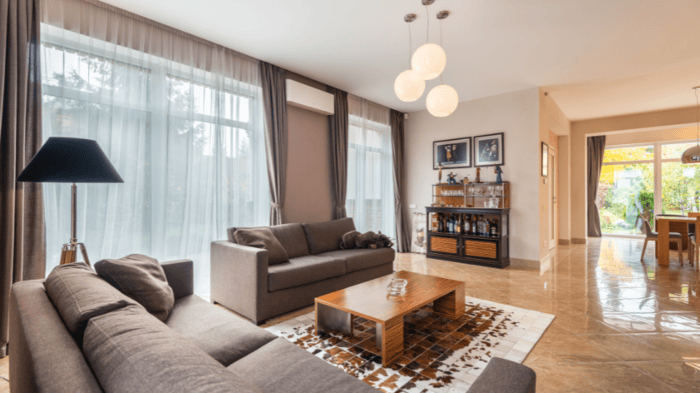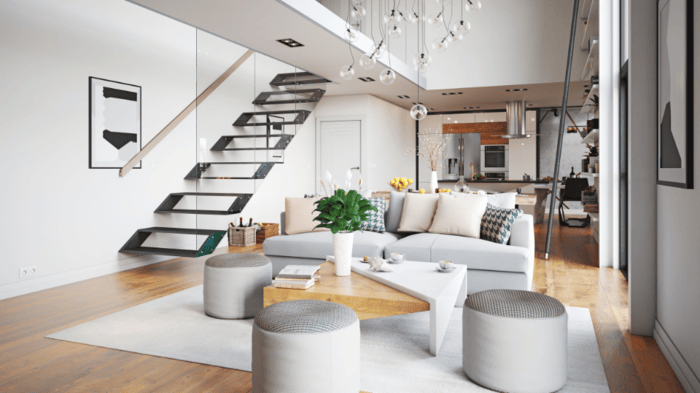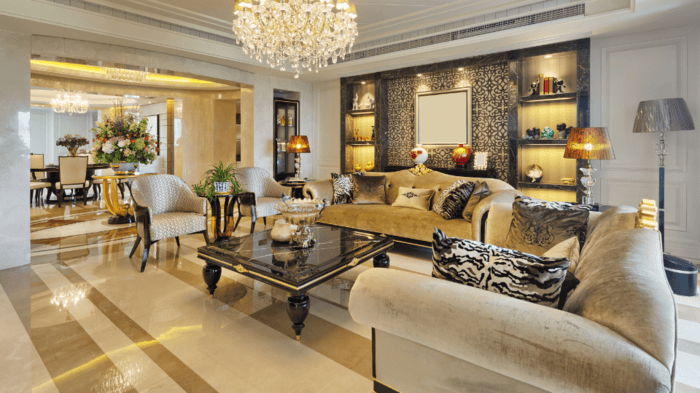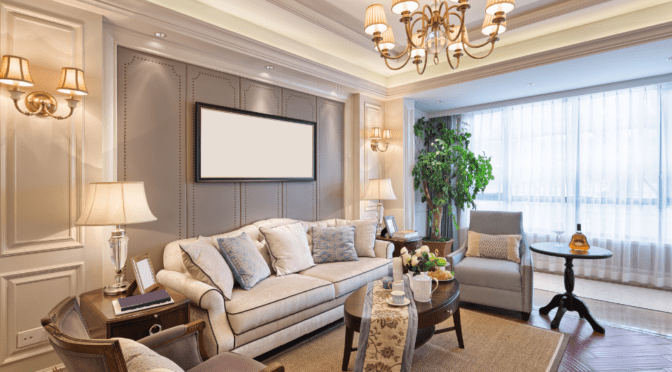Imagine coming home on a long day and then, suddenly home lights automatically transition into your perfect lighting mode as the air temperature meets your preference while low-volume background music artistically plays. In 2025, London interior design for smart homes is more than just a connected space—it’s a living, breathing environment that anticipates your every need, learns from your routines, and adapts to enhance your comfort, security, and overall well-being.
Introduction: Welcome to Your Intuitive Living Space – Beyond the Connected Home
Welcome to a new era of intelligent homes, where artificial intelligence (AI) and advanced sensors work together to create a space for luxury interior design in London that feels alive. We’re no longer talking about simple voice-controlled devices; we’re dreaming of a home that’s always changing, making decisions based on your habits, preferences, and even your health needs. From kitchen interior design that helps you diet to ambient lighting that adjusts to your circadian rhythm, this book explores how you can build a home that is not just “smart,” but deeply intuitive, dynamic, and, most importantly, future-proof.

The Intelligent Core – Connectivity, Automation, and Proactive Security
Any real future-proof home is founded upon a state-of-the-art foundation that enables the seamless integration of groundbreaking technologies, which helps in luxury interior design. In a smart home of 2025, mere connectivity won’t cut it, so they must form an ecosystem that learns, adapts, and optimizes itself based on your unique lifestyle.
Next-Gen Connectivity
Forget Wi-Fi 5 or even 6—the future requires Wi-Fi 7 or Li-Fi (light internet) for lightning-quick, low-latency links that keep all your devices always online and running optimally. Your smart home needs to be powered by a mesh network with AI that dynamically allocates bandwidth, keeping everything from your kitchen appliances to security cameras humming, even in the most distant reaches of your house. And in case of a network breakdown, cell backup systems will get your home up and running like a breeze.
AI-Smart Hub Integration
Your smart hub evolves from being a remote tool to becoming an AI-driven control system for a home automation network. Your home obtains intelligence when the system learns your habits and anticipates your requirements.
It will modify environmental factors such as light, music and temperature by recognizing your current mood or current time of day. Virtual assistants will soon understand regular speech patterns instead of strict commands while home server capacities enable private data management through local processing centers.
The automation level in 2025 extends well past standardized schedules. The houses of the future will sense your needs before you express them then execute actions before you become aware of their execution. Illuminated picture sensors collect environmental information to instantly make automatic real-time system adjustments for optimal performance. Your house will adjust its temperature and lighting settings by geofencing technology when you get near so it can create your perfect comfort zone at door entry time.
Proactive Home Security
The year 2025 will introduce a new security paradigm which moves from reactionary methods to predictive ones. The future security system enhanced by AI intelligence will differentiate between real threats and false alarms by performing real-time threat discrimination.
Organisations will implement biometric authentication techniques based on facial recognition and fingerprint patterns as a dual security measure. Smart sensors will monitor your home for abnormal events, including window breaks and distinctive sounds, and drone technology will perform perimeter inspections to protect your residence.

Smart Appliances and Eco-Friendly Living
With the help of Luxury Space Interior Design, the House of the Future enables your devices to interact jointly with other smart technologies which will learn from your habits to optimise sustainability and energy usage.
AI-Powered Smart Thermostats
Instead of a temperature change, imagine a thermostat that varies with something else. Predictive algorithms will learn your needs they’ll even learn what the weather will be tomorrow and will change the internal climate of the house accordingly. Wastes energy in a few empty rooms from occupancy sensors, and heating and cooling zoning provides personalized comfort in individual areas of your home.
Dynamic Smart Lighting
Lighting technology will progress well past the classic switch operation. Your circadian lighting system adjusts day and night for optimal wake-sleep cycle support so you stay alert for work hours and relaxed for rest intervals. AI-driven lighting systems can automatically adjust lighting based on your mood, although they offer customised settings for performing various activities, including reading, dining and hosting parties. Want something more immersive? The projected light technology enables you to transform your wall surfaces into artwork which changes dynamically.
Personalised Smart Kitchen
The future kitchen operates as a personal assistant to help homeowners prepare their meals. Your AI refrigerator will manage inventory while generating personalised recipes and placing regular grocery reorders when supply is running low. Natural smart oven systems will acquire your cooking habits, and they will modify cooking parameters to produce flawless meals in each cooking session. You will exclusively need to restock pantry items because the system operates automatically without human input to inventory and place orders. The robotic chef system may take over some kitchen chores alongside automated order management, which guarantees that meals will continue to appear without human intervention.
Sustainable Energy Integration
Your smart home will have sustainability as its main focus. Solar panels and storage units will allow your home to generate its power and store it, so you can go off-grid when necessary. Intelligent energy management systems will track and optimize energy consumption in all aspects of the home, lowering your carbon footprint and your bills. Smart water management systems will save water and detect leaks, and state-of-the-art kinetic energy systems can take advantage of motion around the house and help make your home a whole lot greener.

Conclusion: Your Future Home, Today
A smart intelligent home with luxury interior design in London for 2025 requires the setup of an integrated system which understands your needs while adapting to your lifestyle patterns.The apartment delivers an intuitive, intelligent lifestyle through its efficient, sustainable operational features which match convenient living solutions.
When you implement AI systems with sustainable solutions and next-generation connectivity and advanced sensors in your home, you achieve two goals: you transform your house and you secure your future living standards. Your home of the future brings intelligent living spaces which serve you by anticipating what you need so they can improve your life.


